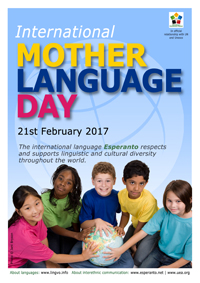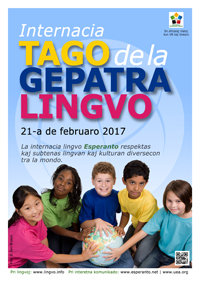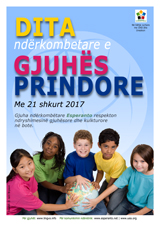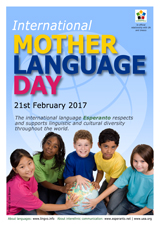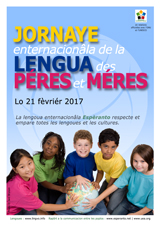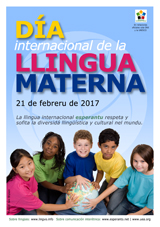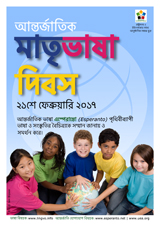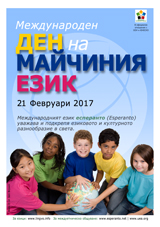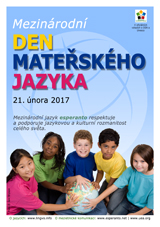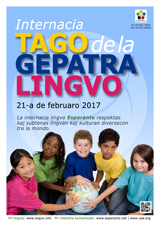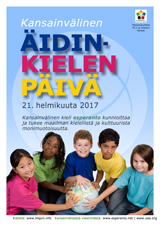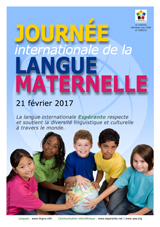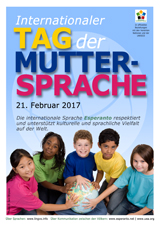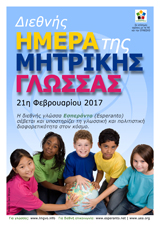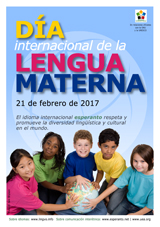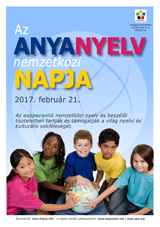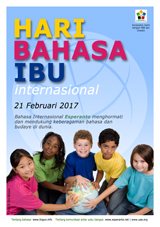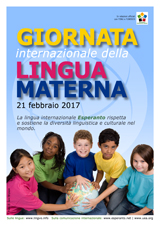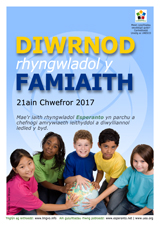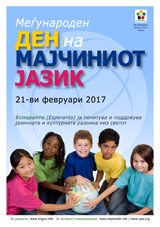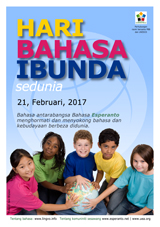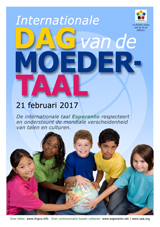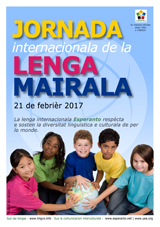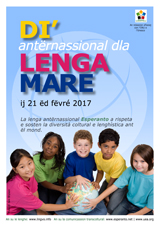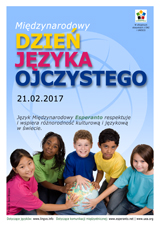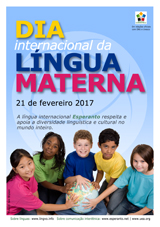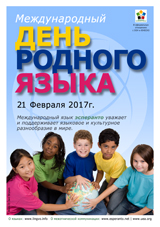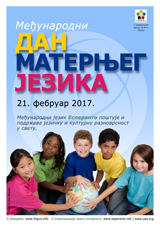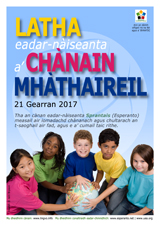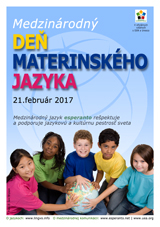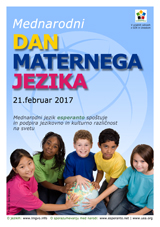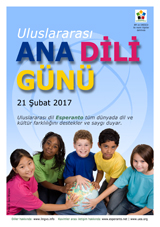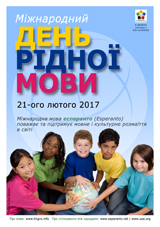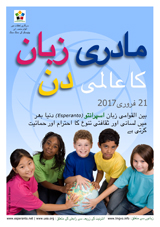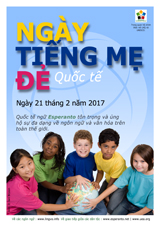|
21st February
International Mother Language Day
On the 21st February 1952, at the University of Dhaka, East Bengal, police shot dead a number of demonstrating students. Those students were demonstrating for people to acknowledge the existence of their mother tongue - Bengali. There was a move to remove that language from the university in favour of a "greater" language, spoken by the strong people of the time.
This is something which has been continually repeated – in various forms – all over the world and throughout history. Not only in East Bengal but also in several European countries, for example in the Netherlands, where the government in 2015 approved plans to gradually strengthen the position of English in education – to the detriment of local mother tongues. (1)
These are not unique events. In both East Bengal and the Netherlands, there is the same logic: "I'm the strong one, so shut up, and if by any chance you want to speak, speak my language." On the other hand, as all linguists tell us (we quote one of them, Ken Hale): "When a language dies, we lose a great intellectual richness, as if a bomb had dropped on the Louvre Museum."
Apart from the social injustice, which happens when anyone's mother tongue is disrespected, we should be aware of the fact that biological and linguistic diversity are inseparable, interconnected and dependent one upon the other. The loss of linguistic diversity brings about the loss of traditional knowledge which is essentially necessary for the continuance of biodiversity, for life. (2), (3)
On 17th November 1999 UNESCO proclaimed 21st February as the International Mother Language Day. In 2007 as well, the General Assembly of the UN called on member states to "promote the preservation and protection of all languages used by peoples of the world", at the same time declaring 2008 as the Year of Languages. (4)
In 2014 on its website, UNESCO also published an Esperanto version of the message from the General Director, Irina Bokova. (5)
What does this have to do with Esperanto? The two things are in fact related, because the core values of this day, multilingualism and the right of every person to speak his/her mother language, are also the values defended by the movement for Esperanto. We Esperantists do not want any language to disappear; we want all languages to continue existing, with respect for everyone's linguistic rights, and for linguistic justice to prevail. With this aim, for many years the Universal Esperanto Association (Universala Esperanto-Asocio, UEA) has solemnly co-celebrated this day, to underline among other things that Esperanto does not eliminate languages, unlike the way the languages of economic and military great powers do.
Esperanto, in fact, is a means of protecting against the disappearance of languages, as Mrs Vigdis FINNBOGADOTTIR (President of the Icelandic Republic, 1980-1996) said:
"It is time that the various nations understand that a neutral language could become a real bulwark for their cultures against the monopolistic influences of only one or two languages, as it now appears increasingly evident. I sincerely hope Esperanto will rapidly be making more progress to assist all of the world's nations." (6)
Perhaps someone is still asking: "Precisely why Esperanto?" The reason is simple. Behind Esperanto there are no states, economic systems, imperialistic struggles, nor peoples whose interest would be the elimination of other peoples, their languages, or the acquisition of their markets. Behind Esperanto there are only people of good will, who strive for justice for all cultures and all languages, in peace between the peoples.
"Strengthening the rights of speakers of all languages is a cause that Esperanto contributes to substantially." ((7) Prof. Robert Phillipson). Esperanto is an instrument accelerating the attainment of just communication and thus of just relations between ethnic groups, cultures, people. "... I hope that Esperanto will continue fulfilling this dual role in promoting diversity and creating unity." ((8) Rita Izsák-Ndiaye, Special Rapporteur of the UN on minority issues)
Consequently, Esperanto helps everyone to keep their own language alive. This is the clear message which Esperanto-speakers from the whole world want to send to everyone worldwide, on 21st February.
- Get to know the international language, Esperanto at www.esperanto.net! (9)
- Learn Esperanto Online: www.duolingo.com and/or www.lernu.net!
Translated into English by Ian Carter (iancarterthecaller@gmail.com)
Universal Esperanto Association / Universala Esperanto-Asocio, UEA (10)
Renato Corsetti, Emilio Cid, Vasil Kadifeli, Stefano Keller
Posters: © Peter Oliver/UEA and translators from different countries
(The UEA Information team)
www.linguistic-rights.org/21-02-2017
1) a) Ons onderwijs2032 - Eindadvies - Platform onderwijs2032, b) Taalvaardigheid - Ons Onderwijs 2032, c) Kabinet maakt lesgeven in vreemde taal op basisschool mogelijk.
2) www.linguistic-rights.org/dokumento/Final_declaration_64th_UN_DPI_NGO_Conference_Bonn_2011_amendments_Universala_Esperanto_Asocio_UEA.pdf (arkiva kopio de la UN-dokumento: PDF)
3) www.terralingua.org/our-work/linguistic-diversity
4) www.un.org/en/events/motherlanguageday
5) www.unesco.org/new/en/unesco/events/prizes-and-celebrations/celebrations/international-days/international-mother-language-day-2014
6) http://www.linguistic-rights.org/uea/Justa_Komunikado_Lingva_Justeco_Vigdis_FINNBOGADOTTIR_prezidento_de_la_Respubliko_Islando_1980_1996.pdf
7) www.linguistic-rights.org/esperanto-125/Dr-Robert-Phillipson-Professor-emeritus-125-years-of-Esperanto.html - see also: Dr. Tove Skutnabb-Kangas
8) www.linguistic-rights.org/esperanto-125/Rita-Izsak-UN-independent-expert-on-minority-issues.html
9) www.esperanto.net
10) Universala Esperanto-Asocio (UEA) - www.uea.org
|

